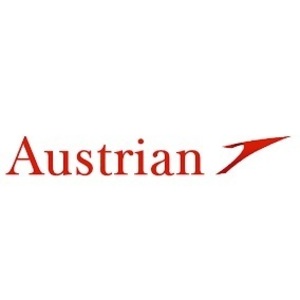OMV, Austrian Airlines are taking off with SAF

December 6, 2021
BY Austrian Airlines
For the first time ever, OMV and Austrian Airlines (AUA) are producing and using regional sustainable aviation fuel (SAF) in Austria. The two companies agreed on the production and fueling of 1,500 metric tons of SAF in the coming year 2022.
The sustainable fuel is produced at the OMV Schwechat Refinery by co-processing Austrian used cooking oil in the fuel production process. This approach makes the entire production chain as regional as possible and keeps transport routes to a minimum. Compared to conventional kerosene, SAF makes for a CO2 reduction of more than 80 percent over the entire lifecycle. One technical key advantage of the sustainable aviation fuel is that the existing infrastructure can be used for storage and refueling. With the direct pipeline connection to the Vienna International Airport, SAF will be available for fueling Austrian Airlines aircraft as of March 2022.
The use of 1,500 metric tons of SAF by Austrian Airlines will save around 3,750 metric tons of CO2. This compares to the CO2 emissions of 333 Vienna-London flights with a typical short to medium-haul AUA aircraft (Airbus A320). The additional costs for Sustainable Aviation Fuel are financed with the support of environmentally conscious passengers. All Austrian Airlines customers can use the Compensaid platform to support flights with SAF and thus contribute to more sustainable air traffic.
Alfred Stern, CEO and chairman of the executive board of OMV Aktiengesellschaft, “Sustainable Aviation Fuels are a key technology for a lower-carbon aviation industry. They represent a readily available, easily applicable way of reducing emissions and are equivalent to conventional fuels in terms of quality and performance. We are very serious about our role in the energy transition and
will continue to work on reducing the CO2 intensity of our portfolio in the future.”
Alexis von Hoensbroech, CEO of Austrian Airlines, “Air travel needs to become more climate friendly and sustainable fuels play the key role. We are proud to become the first Austrian airline to use these fuels in our flight operations - not only for climate protection, but also to strengthen Austria as a business location. I am pleased that we have taken the first step together with our partner OMV. Now, the task is to work with policymakers towards a location-based initiative to meet the EU blending mandates from 2025 onwards and hopefully even surpass them”.
The aviation industry is working intensively on cutting jet fuel consumption and CO2 emissions. Lufthansa Group has pledged to halve its net CO2 emissions by 2030 and make its business CO2 neutral from 2050. Based on the strategic outlook for the aviation sector, OMV sees Sustainable Aviation Fuels as an important addition to its future jet fuel range alongside conventional kerosene. OMV is committed to reducing its carbon footprint and supports its customers in reducing theirs by offering more sustainable OMV products.
Advertisement
Advertisement
Related Stories
U.S. fuel ethanol capacity fell slightly in April, while biodiesel and renewable diesel capacity held steady, according to data released by the U.S. EIA on June 30. Feedstock consumption was down when compared to the previous month.
XCF Global Inc. on July 8 provided a production update on its flagship New Rise Reno facility, underscoring that the plant has successfully produced SAF, renewable diesel, and renewable naphtha during its initial ramp-up.
The USDA’s Risk Management Agency is implementing multiple changes to the Camelina pilot insurance program for the 2026 and succeeding crop years. The changes will expand coverage options and provide greater flexibility for producers.
EcoCeres Inc. has signed a multi-year agreement to supply British Airways with sustainable aviation fuel (SAF). The fuel will be produced from 100% waste-based biomass feedstock, such as used cooking oil (UCO).
SAF Magazine and the Commercial Aviation Alternative Fuels Initiative announced the preliminary agenda for the North American SAF Conference and Expo, being held Sept. 22-24 at the Minneapolis Convention Center in Minneapolis, Minnesota.
Upcoming Events










